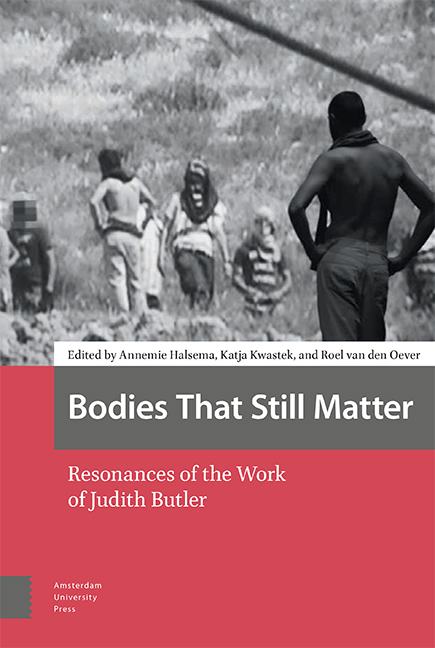Beyond Gender(s)
Published online by Cambridge University Press: 27 May 2021
Summary
Abstract
The study of gender invites one to consider its prima materia, that is to say sex. Sex is the play of genders. They gender it – which is to say they proceed from it not as productions but as the expansion itself that it “is,” if this can be called “being,” grasped in its nonexistence or rather meontology. Sex brings forth emotions, motions, forms, figures, textures and flavors, wounds and pains – the effervescent expression of its nonidentity or pluriidentity. This difference to oneself and the dissemination and multiplying effect of sex constitutes the deepest and most difficult lesson in the study of genders, which is far from being finished, though this has less to do with study, perhaps, than with an experience both meditative and amazed of what has always already pushed and driven us through all possible genders outside any kind of gender, assignation, and identification.
Keywords: sex, gender, language, multiplicity
The study of genders allows all sorts of social, economic, psychological, and psychoanalytic analyses, as well as cultural and ethical ones. This study has yet another utility or another fertility which seems to have been less noticed so far. It invites one to better consider what constitutes its own materia prima or, if one prefers, the primum movens of the multiverse that it explores under the name of “genders.ˮ This first datum is nothing other than sex.
Genders are gendering, if I may put it this way, only inasmuch as they distribute, spread, or simply allow the existence of that which they gender. They neither engender sex nor are generated by it. They are not the genders – or any gender or genre – of the “sex” order or family, for there is no “sex” order or family. Sex is a property of the majority of the living, but is not itself an entity prone to have specifications: species are differentiated from one another biologically due to the fact that they set limits to the possibility of interspecies sexual reproduction (except for a few cases of interspecies reproduction, whose offspring in turn are sterile), though “sex” itself, if we may say so, does not exist outside of its genders.
- Type
- Chapter
- Information
- Bodies That Still MatterResonances of the Work of Judith Butler, pp. 42 - 46Publisher: Amsterdam University PressPrint publication year: 2021



